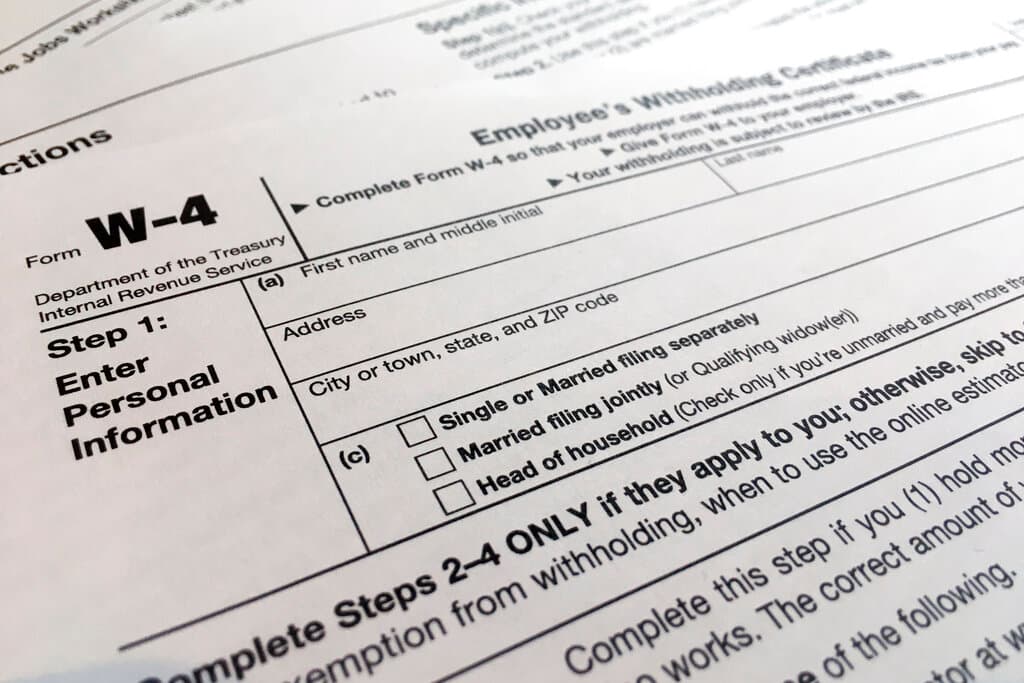Americans Paying More in Taxes Than at Any Time Since 1943
The supersized tax receipts should give pause to lawmakers in Washington considering further tax and spending bills and Covid relief plans.

Americans are on track to pay a record $5 trillion in taxes during the current fiscal year, what would be an all-time high in nominal terms and the most as a percentage of the national gross domestic product since World War II.
Figures from the Congressional Budget Office show that federal tax receipts are up 23 percent so far this fiscal year, which ends September 30. The amount is $1 trillion more than last year, which was itself a record.
An analysis by the nonpartisan Tax Foundation says the receipts amount to 20.2 percent of GDP, a multi-decade high. The last time receipts were at this level was in 2000, at the height of the dot-com bubble, when the percentage amounted to 20 percent.
Not since 1943, when the rate was 20.5 percent, have Americans paid more in taxes as a percentage of GDP. The average over most of the post-war years has been about 17.2 percent.
The foundation says individual income taxes have surged the most since last year, up 32 percent to $2.4 trillion from $1.8 trillion last year, possibly because Americans made more money in last year’s frothy stock and housing markets. Payroll taxes taken from most people’s paychecks and used to finance Social Security and Medicare rose 14 percent to $1.4 trillion, and taxes paid by companies have risen 12 percent to $319 billion. Uncle Sam’s “other” sources of income have risen 17 percent to $328 billion.
Despite the IRS’s skyrocketing receipts, however, the federal budget deficit was $944 billion in the first 11 months of the fiscal year, according to the CBO estimates — $1.8 trillion less than last year, when lawmakers were pushing out pandemic relief checks to most Americans, many businesses, and state and local governments.
Normally, the CBO said it would be able to project the annual budget deficit by this point in the year, but President Biden’s promise to forgive hundreds of billions of dollars in student debt has thrown that into doubt. Without the student loan forgiveness, the country probably would have spent $1 trillion more than it took in for the year, compared to a $2.8 trillion shortfall last year.
“If significant numbers of student loans are modified in September, the 2022 deficit could be considerably larger than CBO has estimated,” the office warned.
The analysts at the Tax Foundation say that the supersized tax receipts should give pause to lawmakers in Washington considering further tax and spending bills, especially given Mr. Biden’s declaration during an interview with “60 Minutes” that the pandemic is, as he put it, “over,” and with inflation eating away at everyone’s earnings.
“Record federal tax collections on top of surging prices — essentially an additional inflation tax paid by everyone who uses dollars — should not be used as a justification for more spending,” analyst William McBride writes. “Excessive spending in response to the pandemic is driving inflation, and rather than ramping up expensive relief programs (e.g., student loan forgiveness), we should be winding them down.
“Taxpayers should demand that pandemic emergency spending end now that the pandemic emergency is over, and that their tax dollars be used more judiciously or returned to them,” he writes.
That seems unlikely, however. Earlier this month, the Biden administration asked Congress to approve an additional $22.4 billion for Covid relief efforts, nearly $12 billion in aid for Ukraine, and $4.5 billion to deal with monkeypox both at home and abroad. The money is on top of spending previously approved by Congress.

